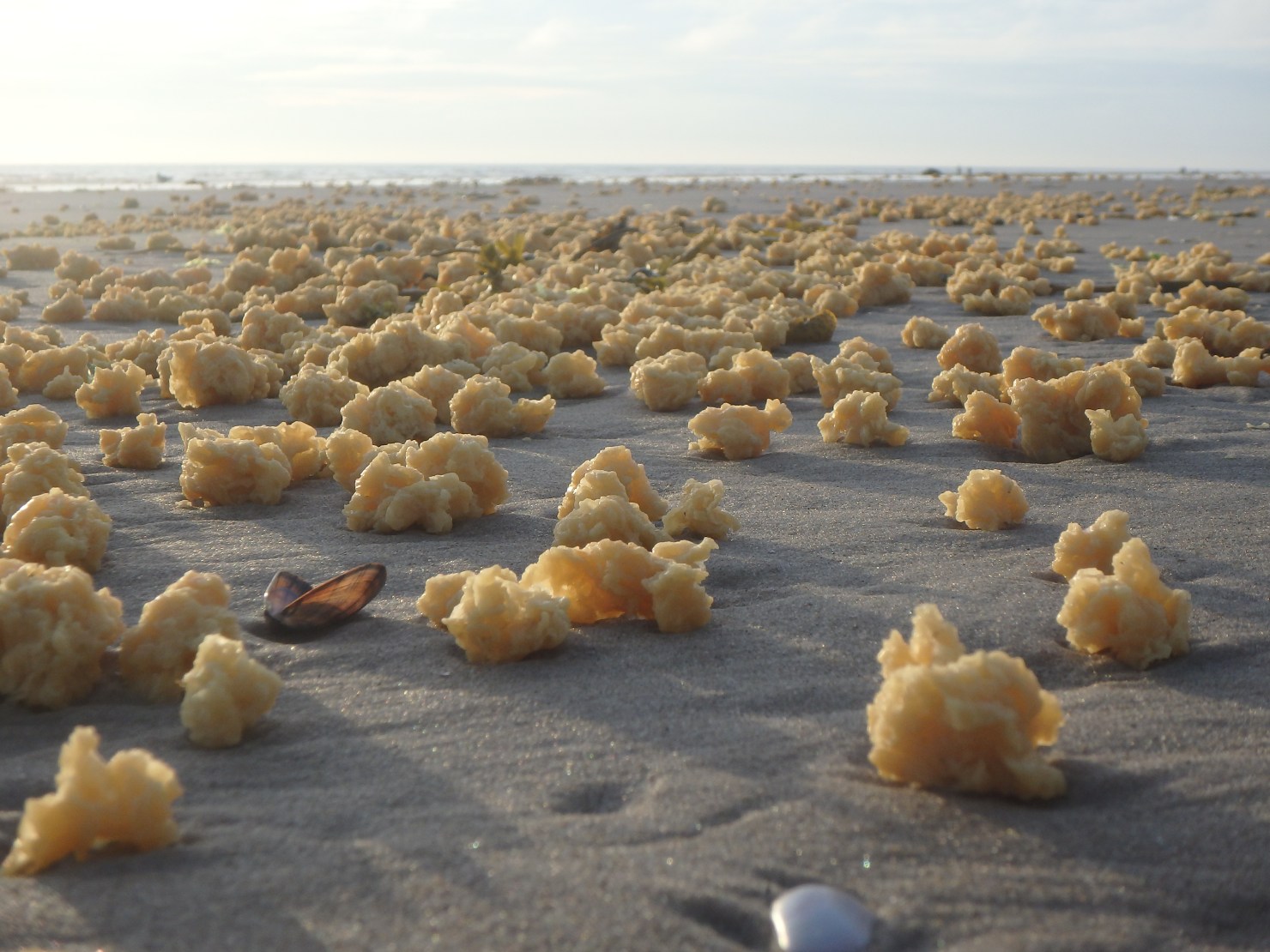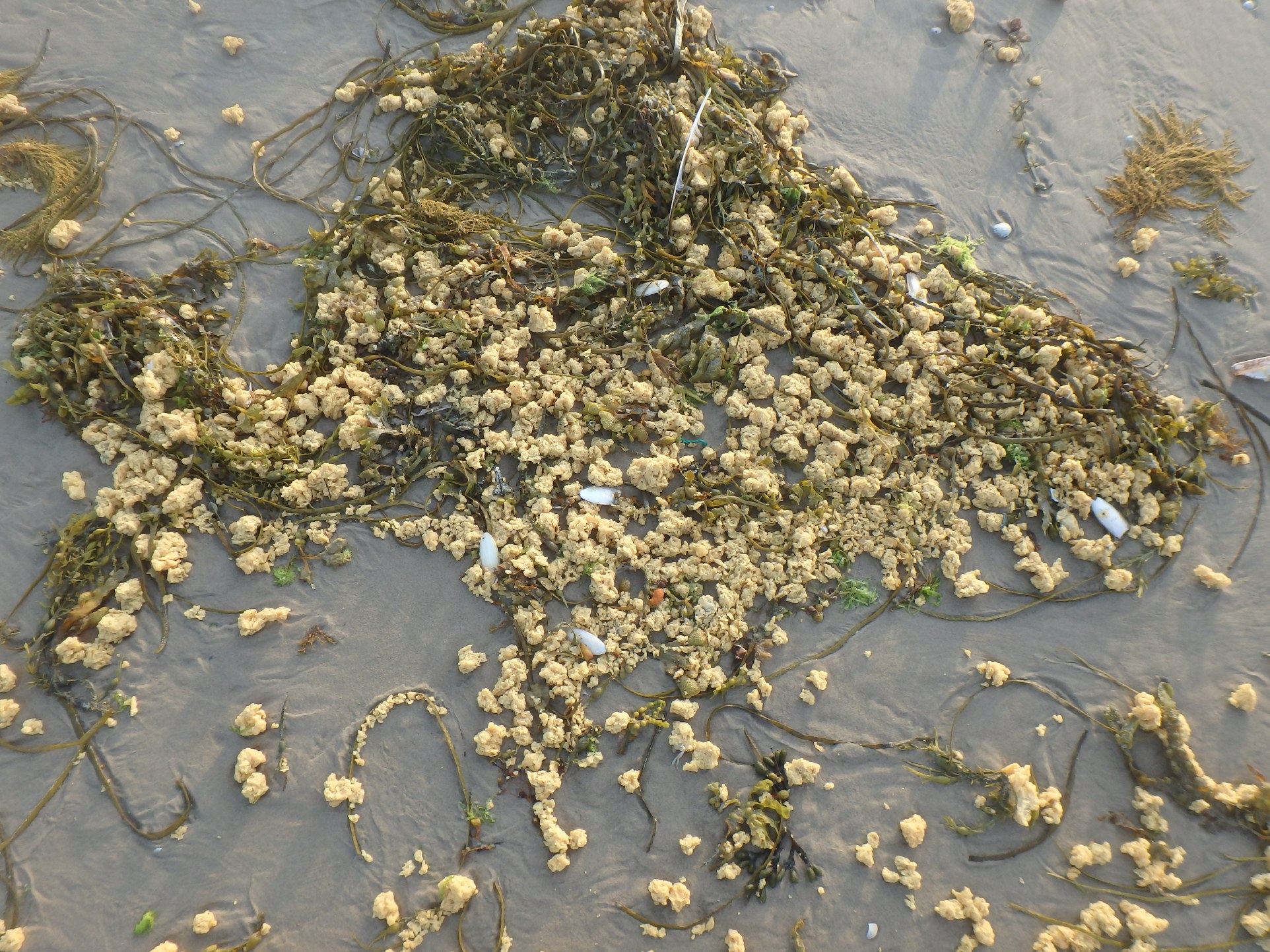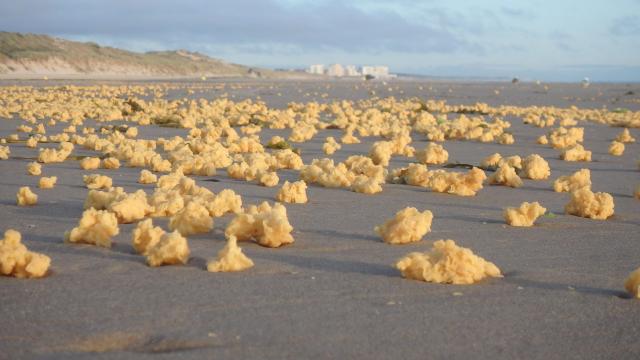Late last week, strange sponge-like clumps began washing ashore in northern France. By the weekend, thousands of the foamy yellow balls were seen along nearly 32km of the coastline. Local authorities aren’t sure where the unsightly stuff is coming from, and an investigation is currently underway.
Image courtesy Sea-Mer Association
As reported in The Local, this mysterious substance has washed ashore on several beaches along the Opal Coast, including La Slack, Wimereux, Le Portel, Equihen-Plage, Hardelot, Le Touquet, Stella and Berck. Many of these areas are popular with tourists and beach goers, and workers are now scrambling to clean it all up. Despite not knowing exactly what it is, the French authorities say the substance isn’t a danger to “public health, animals or plants” in the area, reports The Local.

Image courtesy Sea-Mer Association
That comes as a surprise to Jonathan Hénicart, president of the Sea-Mer Association, who says it would probably be wise to avoid contact with the unknown substance until more is known about it.
“It looks like yellow polyurethane foam balls, but that’s not what it is,” he explained to La Voix du Nord. “When you touch it, it’s a bit greasy. It’s brittle but not easily crumbled. It has no specific odour… [and it’s] different from the [industrial] paraffin that is found all the time on the coast. We do not know if it’s toxic [so] it should not be touched.”
Yesterday, a team of firefighters from d’Étaples went to the beach of Equihen-Plage to observe and collect samples, reports La Voix du Nord. Samples were sent to the Cedre Association in Brest, which specialises in analysing hydrocarbon pollution. The Cedre Association was founded following the sinking of the Amoco Cadiz, and the group’s mandate is to protect local waters from pollution. Results are expected in about a week.

Image courtesy Sea-Mer Association.
This section of the English Channel is one of the busiest waterways in the world, and it’s traversed daily by more than 400 commercial vessels. In the past few months, the area has seen several weird beaching events, including chunks of oil patties in Leffrinckoucke, and pieces of polyurethane foam in the sand on Blériot-Plage beach, reports La Voix du Nord.
Foam (if that’s what this is) is a natural product of the ocean, but in addition to needing air and water to form, it also needs a “surfactant” — a binding molecule that clings to the surface between water and air. Surfactants can come from many human-caused sources, including fertilisers, detergents and sewage. Some kind of chemical with this binding property may be churning in the waters near the Pas-de-Calais, but we’re going to have to wait a few days to find out exactly what it is.
[Sea-Mer Association via The Local]
